|
|
1235 matching reports found. Showing 221 - 240 [TamilNet, Saturday, 29 May 2010, 21:53 GMT]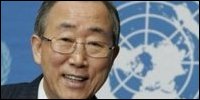 While Secretary General Ban Ki Moon extolled the contributions of the UN's International Criminal Court (ICC) as an effective instrument to uphold peace, justice and human rights, in a Washington Post article, as UN's member nations convene Monday in Kampala to formally review the Rome Treaty, Professor Francis A. Boyle criticized Ban for delaying action on establishing accountability for Sri Lanka's "massacre of about 50,000 Tamils" and urged Ban to "immediately appoint the International War Crimes Committee for Sri Lanka that he had already promised to do several weeks ago." Full story >> [TamilNet, Friday, 28 May 2010, 08:34 GMT]The Sri lankan Governments lack accountability for “one of the worst human rights crises of recent times” and the complicity of global powers and the United Nations in protecting the Sri Lankan Government highlights a failure of the international instruments of justice said Amnesty International Asia Pacific director, Sam Zafiri in an interview with Austrlian media this week. Singling out China and India as part of a “Coalition of governments” that chose not only to ignore the Rajapaksa Governments targeting of Tamil civilians, but who “passed a [U.N] resolution congratulating the Sri Lankan Government” amid attempts to block “efforts at seeking justice”, Zafiri also accused the Australian Government of violating its human rights obligations by refusing to accept Tamil refugees. Full story >> [TamilNet, Friday, 28 May 2010, 00:30 GMT]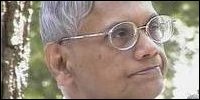 While Tamil demonstrators plan to protest in front of the State Department during Sri Lanka's Minister of External Affairs Gamini Lakshman Peiris's meeting with U.S. Secretary of State Hilary Clinton Friday, reports covering Peiris's US visit indicate an uncomfortable minister facing hostile press and questioners, and the resulting damage to the Minister's mission to block UN and US acting on the war-crimes call by several NGOs. Human Rights Watch, Amnesty, International Crisis Group and Elders this week, had called for an independent international war crimes investigation in Sri Lanka. Minister Peiris has been taking pre-emptive steps, unprecedented for a visiting Minister, to avoid facing serious journalists who have been covering Sri Lanka's war and the conduct of the protagonists during the last months of the war. Full story >> [TamilNet, Tuesday, 18 May 2010, 19:33 GMT]A senior Sri Lankan Army commander and frontline soldier have told Britain’s Channel 4 News that point-blank executions of Tamils at the end of the civil war in May 2009 were carried out under orders ‘from the top’. In an extended segment on Sri Lanka Tuesday, Channel 4 broadcast translated video interviews with the two soldiers. Surrendering LTTE fighters and their families were detained, tortured and shot, the trooper said. Channel 4 also interviewed in the studio the former Chief Prosecutor for the International Criminal Tribunals for the former Yugoslavia and for Rwanda, Louis Arbour, who slammed the impunity enjoyed by Sri Lankan forces throughout the armed conflict. Sri Lanka’s ambassador to the United Nations, Palitha Kohana, failed to show up, despite agreeing beforehand to appear to defend his government’s record. Full story >> [TamilNet, Wednesday, 12 May 2010, 23:07 GMT]While Sri Lanka's committee probing war crimes acknowledged that "it does not have the legal power to investigate alleged rights abuses during the final stages" of Sri Lanka's conflict, US's UN Ambassador Susan Rice commended Rajapakse for appointing the commission, and acknowledging that "accountability for serious violations of international humanitarian law is a crucial pillar of national reconciliation and the rule of law." Reacting on the committee's lack of judicial power, Professor Francis Boyle commented that "this should satisfy the requirement of complementarity necessary for Ban-ki Moon to open his war crimes investigation. There is now NO excuse left for inaction by Ban-ki Moon. He must move forward and immediately establish that War Crimes Investigation Committee."
Full story >> [TamilNet, Tuesday, 11 May 2010, 23:29 GMT]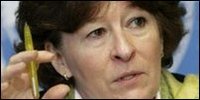 Louise Arbour, president of the NGO International Crisis
Group (ICG) and former United Nations High Commissioner for Human Rights, "will examine these allegations [of war crimes in Sri Lanka] and make the case for an independent international inquiry as a necessary step in making Sri Lanka's tenuous and bitter peace more just and sustainable," said a note sent to the invitees for a conference on "War Crimes in Sri Lanka" to be held Monday at the premises of the event's joint sponsor, Chatham House, London. Full story >> [TamilNet, Sunday, 09 May 2010, 14:38 GMT]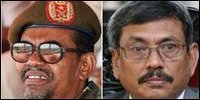 Commenting on Sri Lanka's President Rajapakse's announcement that Colombo will appoint a 7-person commission to "search for any violations of internationally accepted norms of conduct in such conflict situations, and the circumstances that may have led to such actions [in Sri Lanka], and identify any persons or groups responsible for such acts," Francis A Boyle, professor of International Law at the University of Illinois College of Law said "after it was announced that the ICC was going after Sudan, they hired a British lawyer to advise them on setting up some type of fake internal procedure of investigation/ prosecution in order to head off the ICC, pretending to satisfy the requirement of complementarity. It miserably failed, and Sudan's Al Bashir is now under ICC's arrest warrant." Full story >> [TamilNet, Tuesday, 27 April 2010, 02:45 GMT] Dr Rachel Joyce, Conservative Parliamentary Candidate, Harrow West, UK, in a statement circulated to her constituents, said she believes that since Sri Lanka's independence "the acts perpetrated the Government of Sri Lanka on Tamils including the burning down of Jaffna library...disappearance of Tamil individuals...and the use of concentration-style camps for internally displaced Tamils should be classed as Genocide." Dr Joyce further made a campaign promise to "work with the Tamils to get the acts perpetrated on the Tamils classed legally as a genocide so that the UN Convention can be used to address the problems." Full story >> [TamilNet, Saturday, 20 March 2010, 20:58 GMT] Quoting a landmark 1923 decision on rules governing international agreements by the Permanent Court of International Justice (PCIJ), Professor Boyle, an expert in international law, referred to Colombo's claim that UN is infringing on the sovereignty of a member state, and said, "I am not going to spend a lot of time here refuting this erroneous and disingenuous interpretation of international law and the requirements of the United Nations Charter by the GoSL (Government of Sri Lanka) and its Foreign Minister. There is one definitive answer to their objection. Namely, the GoSL Army undoubtedly inflicted numerous violations of the Four Geneva Conventions of 1949 upon the Tamils in Vanni a year ago, and in particular but not limited to gross violations of Common Article 3 thereof, which constituted war crimes. Sri Lanka is a contracting party to the Four Geneva Conventions of 1949."
Full story >> [TamilNet, Friday, 19 March 2010, 18:47 GMT]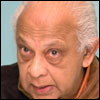 “Despite my involvement over many years, I was taken aback by the result,” writes Brian Senewiratne on the overwhelming mandate for Tamil Eelam in the referenda of the diaspora in several countries. The time for federation has long since gone. Until the Tamil areas are separated from the control in Colombo there will be neither peace nor prosperity in the island. If there is a genuine referendum in the Tamil areas of the island the ‘yes’ vote might be 100 percent and Delhi will have to duck for cover if such a ballot is taken among the 70 million Tamils of Tamil Nadu, he writes. According to him this major crisis of global dimensions, the genesis of which lies in British colonialism, and the global fall-out in resolving it, demands global response. The real war, not in a military sense, is just beginning. Loss of hope has achieved nothing and the ray of hope is the Tamil youth, he says. Full story >> [TamilNet, Friday, 19 March 2010, 00:28 GMT]"If the Government of Sri Lanka ruptures relations with the United Nations, then it will turn itself into a pariah state along the lines of apartheid South Africa or the genocidal rump Yugoslavia, both of which the United Nations General Assembly suspended from participation in the activities of the United Nations for their criminal behavior. In fact and in law, the same principles should apply here.," said Professor Boyle, commenting on Colombo's recent warning that "ties with the United Nations (UN) is in danger of going sour if the present conflict with UN Secretary General Ban ki-moon over his move to appoint a panel on Sri Lanka is not resolved." Full story >> [TamilNet, Saturday, 13 March 2010, 18:13 GMT] While applauding the U.S. Government for revealing significant amount of details that point to complicity of Sri Lanka Government in committing war crimes and crimes against humanity, Professor Francis A. Boyle of University of Illinois College of Law, urged American Tamils to "pressure the relevant agencies of the United States government to produce as much evidence in public as they possibly can against the Rajapaksas, Fonseka, the GOSL General Staff, etc." Prof. Boyle noted that "[t]he United States government did this once before against the Serbian genocidaires Milosevic, Karadzic et al. for what they did to the Bosnians and the Kosovars. The United States government can certainly do the same against the GOSL genocidaires against the Tamils," Prof. Boyle said. Full story >> [TamilNet, Thursday, 11 March 2010, 03:28 GMT]Commenting on the United Nations report that UN Secretary General, Ban Ki Moon's appointed experts will establish standards for Sri Lanka's accountability concerning "possible breaches of international humanitarian law...," Professor Francis A. Boyle of University of Illinois College of Law said, "[t]his language of "international humanitarian law" means that the United Nations will be getting into investigating war crimes and crimes against humanity committed by the GOSL against the Tamils, which is an encouraging sign. In other words, the United Nations will be investigating international criminal responsibility by the Rajapaksas, Fonseka, the General Staff, et al," Boyle added. Full story >> [TamilNet, Sunday, 07 March 2010, 22:03 GMT]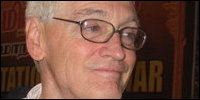 Dismissing the response by Colombo that Ban Ki Moon had not appointed panel of experts on other countries where there are "continuing armed conflicts on a large scale, involving major humanitarian catastrophes and causing the deaths of large numbers of civilians due to military action," as "simply untrue nonsense," Francis A. Boyle, professor at the University of Illinois College of Law, said that during the past year alone UN Human Rights Council had authorized Goldstone Commission investigation into Israel war crimes against Palestinians in Gaza. Noting that the "United Nations is just beginning to do the right thing for the Tamils," Prof Boyle urged that "Tamils around the world could do the same thing for establishing an International Criminal Tribunal for Sri Lanka (ICTSL)." Full story >> [TamilNet, Saturday, 06 March 2010, 05:13 GMT]Whereas the Tamils democratically gave the mandate for the independence of their own country Tamil Eelam by endorsing the Vaddukoddai Resolution of 1976, in the 1977 general elections, the Global Tamil Forum (GTF) calls upon the international community, governments, leaders and the UN to conduct a UN monitored referendum in the North-East region of Sri Lanka and among the displaced Tamils living in other countries, to determine if they wish independence or to be part of a united Sri Lanka, says a crucial part of the GTF resolution passed unanimously in London last week. The GTF resolution, not voluntarily surrendering the cause of Eezham Tamils but leaving it to the democratic choice of the concerned people, should inspire polity in the name of Tamil nationalism in the island and in the diaspora, Tamil circles commented. Full story >> [TamilNet, Sunday, 21 February 2010, 20:59 GMT]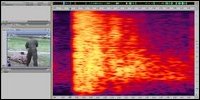 Evidence from reputable and established forensic firms on the authenticity of the Channel-4 execution video continues to accumulate, and the latest is a Pasadena, California, forensic firm which disclosed Friday that one of the firm's technical representative, Jeff Spivak, assisted Professor Philip Alston, UN Special Rapporteur on extrajudicial, summary or arbitrary executions, in analyzing the video for authenticty. The firm claimed that "[i]n part, due to the image processing results performed with the Cognitech Video Investigator software, UN Rapporteur Professor Phillip Alston, has requested a full scale investigation into the incident," indicating a positive conclusion that video was authentic. Full story >> [TamilNet, Tuesday, 09 February 2010, 02:12 GMT]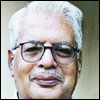 Writing on the negotiations of 1964 Srimao-Shastri Pact that caused adverse impact on the demography of Tamils in Sri Lanka, Professor V. Suryanarayan says, “The most pathetic member of the Indian team was Ramiah, a Cabinet Minister from Tamil Nadu. According to informed sources, throughout the discussions, Ramiah did not utter a single word on behalf of the Tamil plantation workers, who wanted to remain in Sri Lanka and become Sri Lankan citizens.” Mr. Karunanidhi, for his personal consolidation of power, collaborated with New Delhi in ceding Kachchatheevu to Sri Lanka in 1974. Had he challenged it in the Supreme Court, the India-Sri Lanka relations might have taken a different turn, the academic said in a paper he read last week. Full story >> [TamilNet, Sunday, 07 February 2010, 23:15 GMT] The widespread systematic pattern of crimes committed by the Sri Lankan state against Tamil civilians, particularly during the first five months of 2009 in the Northeast province, constitute violations of international humanitarian and human rights law, legal scholars have said. During this period, indifference exhibited by the international community, including the United Nations, led to the deaths of more than 30,000 Tamils. The strong transnational expatriate Tamil community now has the burden (a) to prevent Sri Lanka from erasing the massacres from historical record, (b) to resist attempts by international powers to persuade Tamils for reconciliation without establishing justice and accountability for the crimes, and (c) to seek justice for tens of thousands of Tamil victims by charging Sri Lanka of war crimes and genocide against Tamils in world courts. Full story >> [TamilNet, Friday, 05 February 2010, 04:51 GMT] Referring to Gotabhaya Rajapakse's interview to the BBC Tuesday where Mr Rajapakse said that he would not allow any war crimes investigation in Sri Lanka, Professor Francis Boyle, an expert in International Law and a professor of Law at the University of Illinois College of Law said, "Defense Secretary Rajapaksa has now publicly and definitively ruled out any investigation of war crimes by the Government of Sri Lanka. And he is a government official acting within the scope of his official duties so that his statement binds the State of Sri Lanka under international law. Hence the basic requirement of international law mandating "complementarity" has been satisfied. Full story >> [TamilNet, Sunday, 17 January 2010, 17:16 GMT] If the statement of Lalith Weeratunga, a top aide to Sri Lanka's President Mahinda Rajapakse, that Sri Lanka's use of heavy weapons was eventually stopped as part of a political deal with the Indian government, was true, "then it proves India’s complicity in the GOSL’s [Government of Sri Lanka's] genocide against the Tamils," says Professor Boyle, expert in International Law in a note sent to TamilNet. "The Government of India temporarily stopped the GOSL’s genocide against the Tamils, thus proving it could do so.... India therefore violated its obligation under article 1 of the Genocide Convention “to prevent” the GOSL genocide against the Tamils," asserts Prof. Boyle. Full story >>
|
|



















